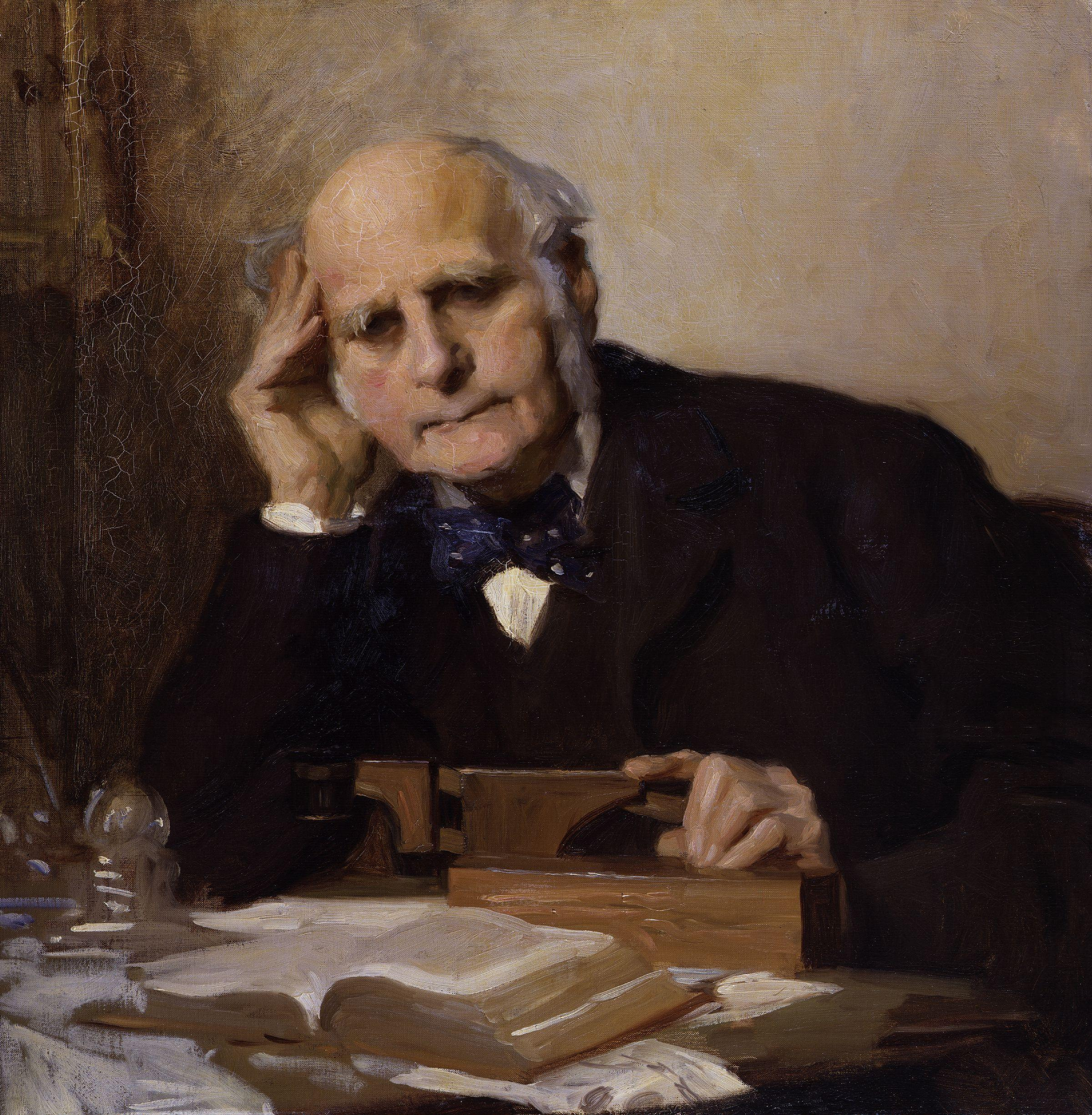|
Argument To Moderation
Argument to moderation ( la, argumentum ad temperantiam)—also known as false compromise, argument from middle ground, and the golden mean fallacy , The Nizkor Project (accessed 29 November 2012)—is the that the is supposedly always a compromise between two opposing positions. An example would be to regard two opposed arguments, with one person (correctly) saying that the sky is blue and another saying that the sky is in fact yellow, and incorrectly conclude that the sky is the intermediate colour of green. See also * |
Continuum Fallacy
The sorites paradox (; sometimes known as the paradox of the heap) is a paradox that results from vague predicates. A typical formulation involves a heap of sand, from which grains are removed individually. With the assumption that removing a single grain does not cause a heap to become a non-heap, the paradox is to consider what happens when the process is repeated enough times that only one grain remains: is it still a heap? If not, when did it change from a heap to a non-heap? The original formulation and variations Paradox of the heap The word ''sorites'' ('' grc-gre, σωρείτης'') derives from the Greek word for 'heap' ('' grc-gre, σωρός''). The paradox is so named because of its original characterization, attributed to Eubulides of Miletus. The paradox is as follows: consider a heap of sand from which grains are removed individually. One might construct the argument, using premises, as follows: :'' grains of sand is a heap of sand'' (Premise 1) :''A hea ... [...More Info...] [...Related Items...] OR: [Wikipedia] [Google] [Baidu] |
Fallacy
A fallacy is the use of invalid or otherwise faulty reasoning, or "wrong moves," in the construction of an argument which may appear stronger than it really is if the fallacy is not spotted. The term in the Western intellectual tradition was introduced in the Aristotelian '' De Sophisticis Elenchis''. Some fallacies may be committed intentionally to manipulate or persuade by deception. Others may be committed unintentionally because of human limitations such as carelessness, cognitive or social biases and ignorance, or, potentially, as the inevitable consequence of the limitations of language and understanding of language. This includes ignorance of the right reasoning standard, but also ignorance of relevant properties of the context. For instance, the soundness of legal arguments depends on the context in which the arguments are made. Fallacies are commonly divided into "formal" and "informal." A formal fallacy is a flaw in the structure of a deductive argument wh ... [...More Info...] [...Related Items...] OR: [Wikipedia] [Google] [Baidu] |
Truth
Truth is the property of being in accord with fact or reality.Merriam-Webster's Online Dictionarytruth 2005 In everyday language, truth is typically ascribed to things that aim to represent reality or otherwise correspond to it, such as beliefs, propositions, and declarative sentences. Truth is usually held to be the opposite of falsehood. The concept of truth is discussed and debated in various contexts, including philosophy, art, theology, and science. Most human activities depend upon the concept, where its nature as a concept is assumed rather than being a subject of discussion; these include most of the sciences, law, journalism, and everyday life. Some philosophers view the concept of truth as basic, and unable to be explained in any terms that are more easily understood than the concept of truth itself. Most commonly, truth is viewed as the correspondence of language or thought to a mind-independent world. This is called the correspondence theory of truth. Various the ... [...More Info...] [...Related Items...] OR: [Wikipedia] [Google] [Baidu] |
Centrism
Centrism is a political outlook or position involving acceptance or support of a balance of social equality and a degree of social hierarchy while opposing political changes that would result in a significant shift of society strongly to the left or the right. Both centre-left and centre-right politics involve a general association with centrism that is combined with leaning somewhat to their respective sides of the left–right political spectrum. Various political ideologies, such as Christian democracy, Pancasila, and certain forms of liberalism like social liberalism, can be classified as centrist, as can the Third Way, a modern political movement that attempts to reconcile right-wing and left-wing politics by advocating for a synthesis of centre-right economic platforms with centre-left social policies. Usage by political parties by country Australia There have been centrists on both sides of politics who serve alongside the various factions within the Liberal an ... [...More Info...] [...Related Items...] OR: [Wikipedia] [Google] [Baidu] |
False Balance
False balance, also bothsidesism, is a media bias in which journalists present an issue as being more balanced between opposing viewpoints than the evidence supports. Journalists may present evidence and arguments out of proportion to the actual evidence for each side, or may omit information that would establish one side's claims as baseless. False balance has been cited as a cause of misinformation. False balance is a bias which usually stems from an attempt to avoid bias and gives unsupported or dubious positions an illusion of respectability. It creates a public perception that some issues are scientifically contentious, though in reality they may not be, therefore creating doubt about the scientific state of research, and can be exploited by interest groups such as corporations like the fossil fuel industry or the tobacco industry, or ideologically motivated activists such as vaccination opponents or creationists. Examples of false balance in reporting on science issue ... [...More Info...] [...Related Items...] OR: [Wikipedia] [Google] [Baidu] |
Golden Mean (philosophy)
The golden mean or golden middle way is the desirable middle between two extremes, one of excess and the other of deficiency. It appeared in Greek thought at least as early as the Delphic maxim "nothing in excess", was discussed in Plato's Philebus. Aristotle analyzed the golden mean in the Nicomachean Ethics Book II: That virtues of character can be described as means. It was subsequently emphasized in Aristotelian virtue ethics. For example, in the Aristotelian view, courage is a virtue, but if taken to excess would manifest as recklessness, and, in deficiency, cowardice. History Western philosophy Crete The earliest representation of this idea in culture is probably in the mythological Cretan tale of Daedalus and Icarus. Daedalus, a famous artist of his time, built feathered wings for himself and his son so that they might escape the clutches of King Minos. Daedalus warns his beloved son whom he loved so much to "''fly the middle course''", between the sea spray and ... [...More Info...] [...Related Items...] OR: [Wikipedia] [Google] [Baidu] |
Horseshoe Theory
In political science and popular discourse, the horseshoe theory asserts that the extreme left and the extreme right, rather than being at opposite and opposing ends of a linear political continuum, closely resemble each other, analogous to the way that the opposite ends of a horseshoe are close together. The theory is attributed to the French philosopher and writer Jean-Pierre Faye. Proponents point to a number of perceived similarities between extremes and allege that both have a tendency to support authoritarianism or totalitarianism. Several political scientists have criticized the theory. Origin The horseshoe metaphor was used as early as during the Weimar Republic to describe the ideology of the Black Front. The later use of the term in political theory was seen in Jean-Pierre Faye's 2002 book ''Le Siècle des idéologies'' (The Century of Ideology). Faye's book discussed the use of ideologies (he points out that "ideology" is a pair of Greek words that were joined in ... [...More Info...] [...Related Items...] OR: [Wikipedia] [Google] [Baidu] |
View From Nowhere
Journalistic objectivity is a considerable notion within the discussion of journalistic professionalism. Journalistic objectivity may refer to fairness, disinterestedness, factuality, and nonpartisanship, but most often encompasses all of these qualities. First evolving as a practice in the 18th century, a number of critiques and alternatives to the notion have emerged since, fuelling ongoing and dynamic discourse surrounding the ideal of objectivity in journalism. Most newspapers and TV stations depend upon news agencies for their material, and each of the four major global agencies (Agence France-Presse (formerly the Havas agency), Associated Press, Reuters, and Agencia EFE) began with and continue to operate on a basic philosophy of providing a single objective news feed to all subscribers. That is, they do not provide separate feeds for conservative or liberal newspapers. Journalist Jonathan Fenby has explained the notion: To achieve such wide acceptability, the agencies avo ... [...More Info...] [...Related Items...] OR: [Wikipedia] [Google] [Baidu] |
Wisdom Of The Crowd
The wisdom of the crowd is the collective opinion of a diverse independent group of individuals rather than that of a single expert. This process, while not new to the Information Age, has been pushed into the mainstream spotlight by social information sites such as Quora, Reddit, Stack Exchange, Wikipedia, Yahoo! Answers, and other web resources which rely on collective human knowledge. An explanation for this phenomenon is that there is idiosyncratic noise associated with each individual judgment, and taking the average over a large number of responses will go some way toward canceling the effect of this noise. Trial by jury can be understood as at least partly relying on wisdom of the crowd, compared to bench trial which relies on one or a few experts. In politics, sometimes sortition is held as an example of what wisdom of the crowd would look like. Decision-making would happen by a diverse group instead of by a fairly homogenous political group or party. Research within cogn ... [...More Info...] [...Related Items...] OR: [Wikipedia] [Google] [Baidu] |



